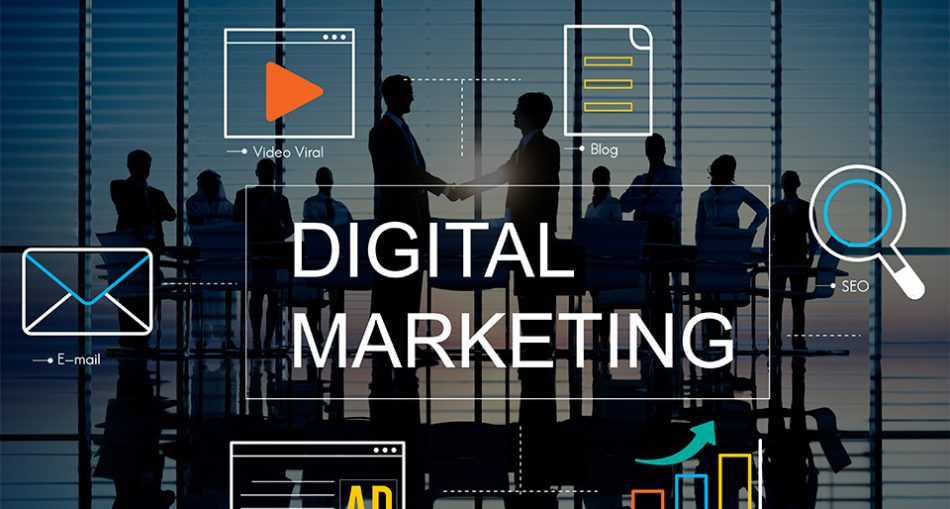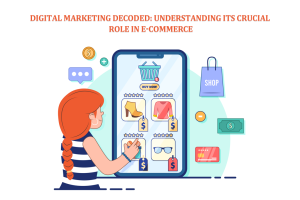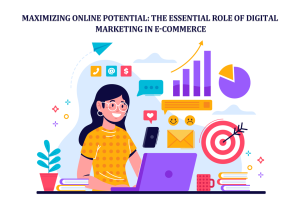Digital Marketing: Overview, Components, Importance, Implementation and Advantages.
Digital Marketing refers to the utilization of digital channels, technologies, and platforms to promote products, services, or brands to reach and engage with an audience. It encompasses a broad spectrum of online marketing efforts, leveraging digital mediums such as the internet, social media, search engines, email, mobile apps, and other digital technologies to connect with potential customers.
A dynamic and evolving field that encompasses a broad range of online strategies and techniques aimed at promoting products, services, or brands through various digital channels. Unlike traditional marketing, which primarily uses offline methods, digital marketing leverages the power of the internet and electronic devices to reach and engage with a global audience. This approach offers numerous advantages, making it a fundamental aspect of modern business strategies.
Components of Digital Marketing:
- Search Engine Optimization (SEO): Enhances website visibility and ranking on search engines to attract organic traffic.
- Content Marketing: Involves creating and sharing valuable content to attract and engage audiences, fostering brand loyalty and authority.
- Social Media Marketing (SMM): Engages audiences on various social media platforms to build brand awareness, drive traffic, and encourage interaction.
- Email Marketing: Utilizes email campaigns to deliver personalized messages, nurture leads, and promote products/services.
- Pay-Per-Click (PPC) Advertising: Involves paying for ad placement on search engines or social media platforms to drive targeted traffic.
- Affiliate Marketing: Collaborates with affiliates or partners who promote products/services in exchange for a commission for conversions.
- Influencer Marketing: Partners with influential individuals or celebrities to endorse products/services to their audience.
Importance of Digital Marketing:
- Global Reach: Allows businesses to reach a vast, global audience beyond geographical boundaries.
- Targeted Advertising: Enables precise targeting based on demographics, behaviors, and interests.
- Cost-Effectiveness: Offers more cost-effective solutions compared to traditional marketing methods.
- Measurable Results: Provides analytics and data insights for tracking performance and ROI.
- Enhanced Engagement: Facilitates interactive communication and engagement with customers in real-time.
Implementation of Digital Marketing:
- Understanding Audience: Identify target demographics, preferences, and behaviors.
- Strategic Planning: Define goals, select appropriate digital channels, and develop a comprehensive marketing strategy.
- Content Creation: Generate high-quality, engaging content tailored to the chosen platforms.
- Campaign Execution: Implement campaigns, monitor performance, and optimize based on data insights.
- Analysis and Optimization: Continuously analyze data to refine strategies for better results and engagement.
Advantages of Digital Marketing:
- Global Reach: Digital marketing breaks geographical barriers, allowing businesses to reach a vast and diverse audience worldwide. This facilitates the expansion of customer bases beyond local markets.
- Cost-Effectiveness: Traditional marketing methods can be expensive, especially for small businesses. Digital marketing offers more affordable options such as social media advertising, pay-per-click campaigns, and email marketing.
- Measurable Results: Unlike traditional marketing, where measuring ROI can be challenging, digital marketing provides detailed and real-time insights into campaign performance. Analytics tools help track website traffic, engagement rates, conversion rates, and more.
- Targeted Audience: With digital marketing, businesses can precisely target their desired audience based on demographics, interests, behaviors, and more. This precision ensures that marketing efforts are focused on those most likely to convert.
- Personalization: Digital marketing allows for tailored messaging and content delivery. Personalized campaigns enhance customer experiences and increase the likelihood of engagement and conversions.
- Interactivity: Digital marketing provides platforms for two-way communication, allowing businesses to interact directly with their audience through social media, comments, chats, and feedback forms.
- Quick Adaptation: In the fast-paced digital landscape, it’s easier to adapt and optimize campaigns based on real-time data. This agility allows businesses to stay competitive and relevant.
- Multiple Channels: Digital marketing offers a multitude of channels, including social media, search engines, email, content marketing, influencer collaborations, and more. This diversity ensures businesses can reach their audience across various touchpoints.
- Higher Engagement: Engaging content, interactive campaigns, and multimedia elements (videos, infographics, etc.) capture users’ attention and encourage them to share, comment, and participate.
- 24/7 Availability: Digital marketing campaigns run around the clock, allowing businesses to engage with their audience at any time, regardless of time zones.
- Improved Conversion Rates: Targeted campaigns and personalized content result in higher conversion rates compared to generic approaches.
- Data-Driven Insights: Digital marketing relies on data analysis to refine strategies. Businesses can identify what’s working and what’s not, leading to continuous improvement.
- Competitor Analysis: Digital tools enable businesses to monitor their competitors’ activities and strategies, helping them stay ahead in the market.
- Brand Building: Consistent digital presence and engaging content contribute to brand visibility and recognition.
Digital marketing continues to evolve with emerging technologies and consumer behavior. It’s a dynamic field that enables businesses to connect, engage, and build relationships with their audience in the digital space. In today’s digital age, where consumers are spending more time online, digital marketing offers unparalleled opportunities for businesses to connect, engage, and thrive. Its advantages not only enhance customer interactions but also contribute to long-term business growth and success.







